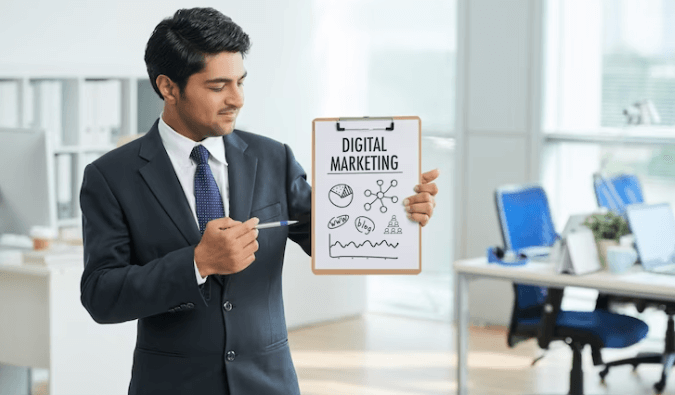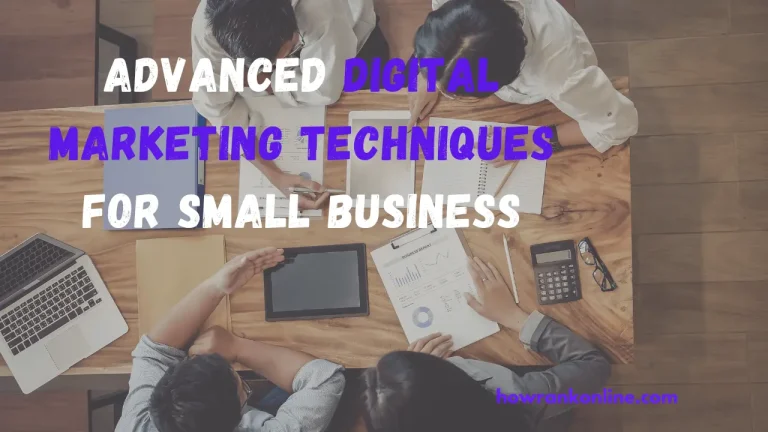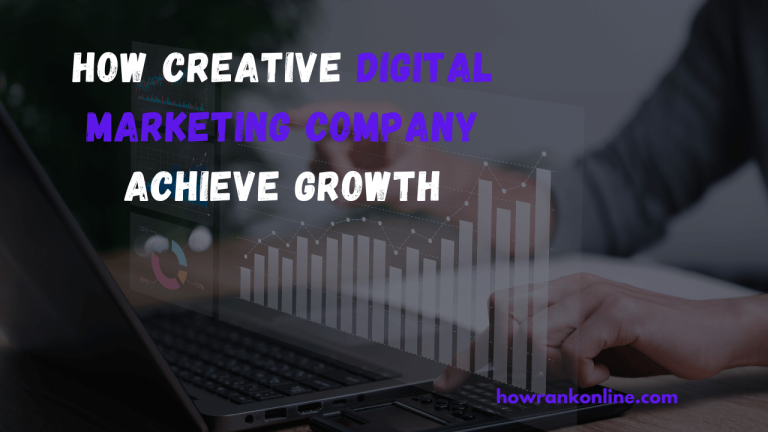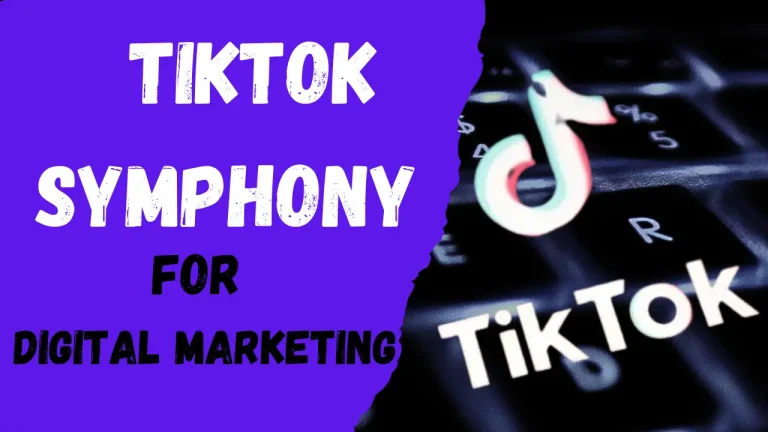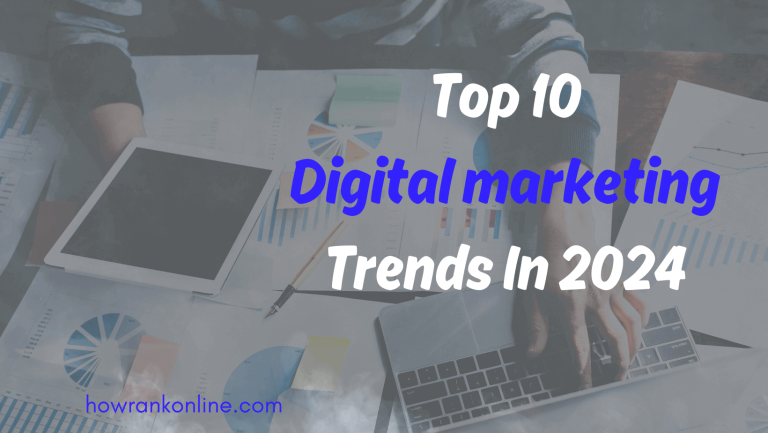In today’s fast-paced digital landscape, the concept of marketing has undergone a revolutionary transformation. Gone are the days of traditional methods; we are now living in an era where modern means of digital marketing dominate the business realm. This article delves into the intricacies of Advance digital marketing, exploring its significance, key components, emerging trends, challenges, and strategies for success.
A. Definition of Advance Digital Marketing
Advance and Creative digital marketing refers to the contemporary techniques and strategies businesses employ to promote their products or services in the online sphere. It encompasses a wide array of channels and technologies that leverage the power of the internet to reach and engage with the target audience.
B. Evolution of Digital Marketing
The evolution of digital marketing has been nothing short of remarkable. From the advent of the internet to the rise of social media, businesses have had to adapt to an ever-changing digital landscape. Understanding this evolution is crucial to navigating the complexities of modern digital marketing.
II. Importance of Advance Digital Marketing
A. Reaching Target Audience
One of the primary advantages of modern digital marketing is its unparalleled ability to reach a specific target audience. Through advanced targeting tools, businesses can tailor their messages to resonate with the right demographic, ensuring maximum impact and return on investment.
B. Enhancing Brand Visibility
In a world saturated with information, standing out is a challenge. Advance digital marketing provides a platform for businesses to enhance their brand visibility through strategic online campaigns, compelling content, and visually appealing multimedia.
C. Driving Customer Engagement
Engaging with customers has never been more critical. Modern digital marketing facilitates two-way communication, allowing businesses to connect with their audience on a personal level. From social media interactions to personalized email campaigns, customer engagement is at the forefront of successful digital marketing strategies.
III. Key Components of Advance Digital Marketing

A. Social Media Marketing
Social media platforms have become integral to modern digital marketing. From Facebook to Instagram, businesses leverage these channels to connect, share content, and build a loyal community of followers.
B. Content Marketing
Content is king in the digital realm. Whether through blog posts, videos, or infographics, compelling content is the driving force behind successful modern digital marketing campaigns.
C. Search Engine Optimization (SEO)
Ensuring that your content is discoverable is where SEO plays a pivotal role. Optimizing for search engines enhances the visibility of your digital assets, driving organic traffic to your website.
D. Email Marketing
Despite the rise of various channels, email marketing remains a potent tool. Well-crafted emails can nurture leads, build relationships, and drive conversions.
IV. Trends in Creative Digital Marketing
A. Artificial Intelligence in Marketing
The integration of artificial intelligence (AI) has transformed digital marketing trends. AI algorithms analyze data, personalize content, and automate processes, providing a more efficient and targeted approach.
B. Video Marketing
The consumption of video content is on the rise. Video marketing, whether through tutorials, product demonstrations, or storytelling, captures the audience’s attention and fosters engagement.
C. Influencer Marketing
Collaborating with influencers has become a staple in Advance digital marketing. Influencers, with their dedicated followers, offer businesses a direct line to a pre-established and trusting audience.
V. Challenges in Advance Digital Marketing

A. Information Overload
The constant influx of information can overwhelm consumers. Cutting through the noise to convey a clear and compelling message is a persistent challenge for modern digital marketers.
B. Ad Blocking
As consumers become more tech-savvy, ad-blocking tools have gained popularity. Navigating around these obstacles requires creativity and a focus on delivering value through ads.
C. Data Privacy Concerns
With the increasing scrutiny on data privacy, businesses must tread carefully. Building trust with consumers by transparently handling their data is essential to maintaining a positive digital reputation.
VI. Strategies for Effective Advance Digital Marketing

A. Personalization
Personalization is no longer a luxury but a necessity. Tailoring content and experiences to individual preferences enhances engagement and fosters a sense of connection.
B. Data Analytics
In the digital age, data is a goldmine. Utilizing analytics tools to glean insights into consumer behavior allows businesses to make informed decisions and refine their marketing strategies.
C. Mobile Optimization
The prevalence of smartphones means that businesses must optimize their digital content for mobile users. Responsive websites and mobile-friendly campaigns ensure a seamless experience across devices.
VII. Case Studies
A. Successful Advance Digital Marketing Campaigns
Examining real-world examples provides valuable insights. Case studies showcase the strategies and tactics employed by successful brands, offering inspiration for businesses seeking to elevate their Creative digital marketing efforts.
B. Lessons Learned
Learning from both successes and failures is crucial. Analyzing case studies helps identify common pitfalls and best practices, guiding businesses toward effective advance digital marketing strategies.
VIII. Future of Digital Marketing

A. Emerging Technologies
The future of digital marketing holds exciting prospects with the integration of emerging technologies such as augmented reality (AR), virtual reality (VR), and the Internet of Things (IoT).
B. Predictions for the Next Decade
Anticipating the future allows businesses to stay ahead of the curve. Predictions for the next decade include further advancements in AI, the continued rise of immersive experiences, and an increased focus on sustainability in marketing practices.
IX. Conclusion
In conclusion, modern digital marketing is a dynamic and ever-evolving landscape that demands adaptability and innovation. As businesses navigate the complexities of this digital era, understanding the importance of reaching the right audience, embracing key components, staying abreast of trends, and addressing challenges with effective strategies is paramount.

